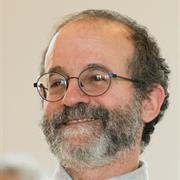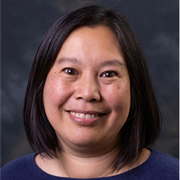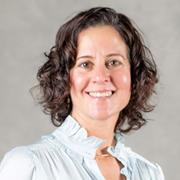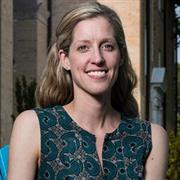Cognitive Science (Joint PhD)
Spring: Sep 15 (Computer Science)
Summer: n/a
Overview
Cutting across the information and life sciences, cognitive science is a paradigmatic multi- and inter-disciplinary research program with enormous future societal benefits, especially as intelligent artificial agents are becoming part of our lives.
Program Objectives
Tufts has built up a world-renowned faculty in Cognitive Science, some of whom have been prominent since the beginnings of the field. The joint PhD program has particular interdisciplinary strength in the area of human language, including theoretical linguistics, psycho- and neurolinguistics, reading and dyslexia, and computational linguistics, and it offers considerable expertise as well in other traditional subareas of cognitive science including animal cognition, human memory, behavioral/cognitive/affective neuroscience, cognitive modeling, robotics, and human computer interaction.
Application Requirements
- Application Fee
- Resume/CV
- Personal Statement
- Official TOEFL, IELTS, or Duolingo test scores (if applicable)
- Child Study and Human Development considers a TOEFL score of 95, IELTS score of 7, or a Duolingo score of 115 to be competitive for admittance.
- Computer Science considers a TOEFL score of 100, IELTS score of 7.5, or Duolingo score of 120 to be competitive for admittance. See the Computer Science Doctorate page for a listing of specific subcategory scores.
- The remaining tracks follow the standard guidelines found on our International Student Requirements page
- Transcripts
- Three Letters of Recommendation
- GRE General Test scores: Not required for applicants applying to Psychology: Cognitive Science, Child Study and Human Development: Cognitive Science, and Education: Cognitive Science. If you are applying to the Computer Science: Cognitive Science program, GREs are waived for those who will have received a degree from an institution located in the U.S. or Canada by time of enrollment.
- Child Study and Human Development Only: A supplemental essay (maximum 500 words) that answers the prompt: "How do differences in cultural and/or contextual processes impact theory, research, or practice in your area of scholarly interest?"
There is no separate admissions process for the cognitive science PhD program. Simply indicate on your application to a home department that they would like to be admitted to the cognitive science PhD program. The program director will work with faculty responsible for admission in the home department to determine your eligibility. Note that this process will not conflict with the admissions process (or criteria) in your home department; only students that satisfy the admissions criteria of the home department can be considered for admission into the cognitive science PhD program.
- PhD in Psychology: Cognitive Science - Indicate "Cognitive Science" on application.
- PhD in Child Study and Human Development: Enroll in Cognitive Sciences program after matriculation.
- PhD in Computer Science: Indicate "Cognitive Science" on application.
- PhD in Education: Cognitive Science: Indicate "Cognitive Science" on application.
Tuition and Financial Aid
Home Departments
There are four departments are associated with this exciting interdisciplinary program: Psychology, Computer Science, Child Study and Human Development and Education. Students apply to and enroll in the joint Cognitive Science PhD program through one of these departments (referred to as the 'home departments'), either as a prospective graduate student or as a current graduate student after they have been accepted by one of the departments (e.g., after they have already started their PhD).
Faculty

Ariel Goldberg

Ariel Goldberg
Research/Areas of Interest: Psychology of Language, Linguistics

Stephanie Badde

Stephanie Badde
Research/Areas of Interest: Perception

Bárbara M. Brizuela

Bárbara M. Brizuela

Eileen Crehan

Eileen Crehan
Research/Areas of Interest: Neurodevelopmental disorders; autism spectrum disorder; sexuality education; social perception; eye tracking; dimensional measurement of psychological symptoms

J.P. de Ruiter

J.P. de Ruiter
Research/Areas of Interest: Cognition and Psycholinguistics

Calvin Gidney

Calvin Gidney
Research/Areas of Interest: Linguistics; literacy, sociolinguistic development; dyslexia in African-American children; language of children's cartoons; children's name-calling

Brian Epstein

Brian Epstein
Research/Areas of Interest: Metaphysics, Philosophy of Social Science, Philosophy of Language

David Hammer

David Hammer
Research/Areas of Interest: Research on learning and instruction. My research is on learning and teaching in STEM fields (mostly physics) across ages from young children through adults. Much of my focus has been on intuitive "epistemologies," how instructors interpret and respond to student thinking, and resource-based models of knowledge and reasoning.

Mimi Kao

Mimi Kao
Research/Areas of Interest: Neural basis of vocal communication

Gina Kuperberg

Gina Kuperberg
Research/Areas of Interest: Cognitive Neuroscience, Language (semantics), Clinical cognitive neuroscience

Tama Leventhal

Tama Leventhal
Research/Areas of Interest: Neighborhood and community context; housing context; family context; poverty and socioeconomic status; social policy; adolescence; immigrant young children

Paul Muentener

Paul Muentener
Research/Areas of Interest: Conceptual Development, Causal Reasoning, Language & Thought

Aniruddh Patel

Aniruddh Patel
Research/Areas of Interest: Music Cognition

Elizabeth Race

Elizabeth Race
Research/Areas of Interest: Cognitive Neuroscience

Holly Taylor

Holly Taylor
Research/Areas of Interest: Spatial Cognition, Applied Cognition.

Ayanna Thomas

Ayanna Thomas
Research/Areas of Interest: Memory and Aging

Heather Urry

Heather Urry
Research/Areas of Interest: Emotion and Emotion Regulation

Nathan Ward

Nathan Ward
Research/Areas of Interest: Applied Cognition